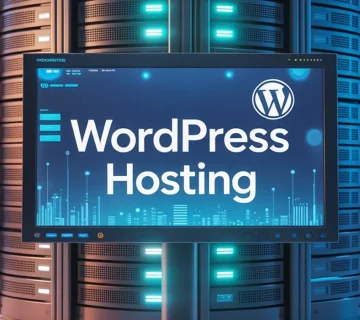Table of Contents
Website hosting services form the backbone of every website, be it small or large. If you run an online store, a business website, or a blog, the hosting directly influences how fast your site loads, how secure it stays, and how easy it is to reach for visitors. With all the choices out there in the market today, it is intimidating to choose the correct plan. This guide de-mystifies everything you will need to know to choose the perfect plan for your company.
Why Website Hosting Services Matter
Each website exists on a server. Server space is rented out by hosting providers, ensuring your site is available 24/7. A good hosting service provides improved uptime, faster speeds, and robust protection from security issues. Without a good hosting plan, your site will be at risk of downtime, poor performance, and even bad search engine rankings.
To businesses whose living depends on Digital Marketing and SEO, hosting can make or destroy growth. Search engines like Google prefer well-performing websites, meaning that your hosting selection directly influences visibility and ranking.
Types of Web Hosting
When choosing website hosting services, it is useful to familiarize yourself with the available types.
- Shared Hosting
Cheap and entry-level. Several sites share resources on one server. Suitable for small enterprises and personal websites, but not so good for busy websites.
- VPS Hosting (Virtual Private Server)
Provides more dedicated resources than shared hosting. It’s scalable, flexible, and a fantastic choice for medium businesses.
- Dedicated Hosting
You lease a complete server for your website only. This provides maximum security, control, and speed, but at a higher price.
- Cloud Hosting
One of the most recently available options. Your site is held on more than one server, keeping downtime low and flexibility high. Suitable for businesses expecting expansion and needing flexibility.
- Managed WordPress Hosting
Especially intended for WordPress users. Provides automatic updates, speed, security, and thus is ideal for non-technical users who want simplicity.
Features to Find in the Top Hosting
All plans are not the same. These are the key features to consider before making a buy:
- Uptime Guarantee: There has to be at least 99.9% uptime so that the site is always online.
- Speed and Performance: Faster site will give better user experience as well as better search engine ranking.
- Security Features: Firewalls, SSL certificate, backups, and malware scanning are non-negotiables.
- Scalability: Go for the plan that will expand with the growth of the business.
- Customer Support: 24/7 customer support is necessary for businesses who cannot afford down-time.
- Storage and Bandwidth: Ensure the plan accommodates the needs for traffic and content.
How to Match Hosting with Business Requirements
Businesses are different in their hosting requirements.
- Small businesses or start-ups: Would be sufficient with shared hosting or cloud hosting with the startup plan.
- E-commerce sites: Need robust security, load speed, and scalability . VPS or dedicated hosting would be best.
- Agencies and Digital Marketing agencies: Need reliable uptime and performance to host numerous client websites.
- Blogs or media websites with lots of content: Cloud hosting is ideal for managing massive traffic spikes.
Know your needs, traffic demands, and budget to select a web hosting plan that balances performance and cost.
Best Practices When Choosing a Host Provider
Read Reviews and Ratings: Real customer reviews give some indication of reliability.
Test Support: Try calling support before purchasing to test responsiveness.
Compare Pricing vs. Value: Cost isn’t everything. Look for a balance of price and features.
Look for Growth Options: Be sure there is an obvious way to increase the plan.
Know the Terms: Read about renewal rates, surprise costs, and length of contract.
Hosting and SEO: The Connection
Search engines are increasingly quantifying user experience, and hosting plays a direct role in it. A fast website with few downtime issues and safe connections will outrank a slow or erratic one. Selecting the best web hosting is not only for your site to be up , it is also for increasing visibility, trust, and conversions through SEO.
Conclusion
Picking the ideal website hosting services is among the most crucial decisions for your success online. Ranging from shared hosting to cloud, each business possesses its individual requirements. Make reliability, speed, scalability, and security your priorities before deciding. With proper research and intelligent decision-making, your hosting can not just add to your website’s improvement but also enhance your digital marketing and SEO endeavors.
Frequently Asked Questions(FAQs):
What is best for small businesses to host?
Shared hosting or cloud hosting at the basic level usually is best for small websites and new startups.
Can hosting impact SEO rankings?
Yes, hosting impacts site speed, uptime, and security—all of which impact SEO performance.
How do I know if I should upgrade my hosting plan?
If your site is slowing down, crashing during traffic surge, or needs extra storage space and bandwidth, it’s time to upgrade.








